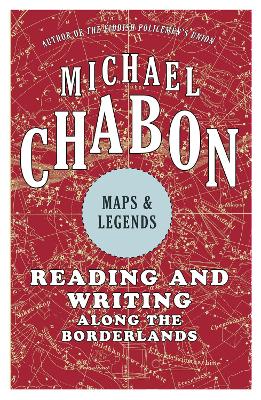“Let’s blow their little minds. A mind is not blown, in spite of whatever Hollywood seems to teach, merely by action sequences, things exploding, thrilling planetscapes, wild bursts of speed. Those are all good things; but a mind is blown when something that you always feared but knew to be impossible turns out to be true; when the world turns out to be far vaster, far more marvelous or malevolent than you ever dreamed; when you get proof that everything is connected to everything else, that everything you know is wrong, that you are both the center of the universe and a tiny speck sailing off its nethermost edge.”
He’s mourning the fact that we’ve forgotten how to write for kids, that comic books are no longer the collective language of childhood, but by the standards he sets forth we’ve largely forgotten how to write for anyone. Hell, by those standards, we’ve forgotten how to live. “Anybody who thinks that kids get bored by hearing the same story over and over again has never spent time telling stories to kids.” And anybody who discounts the power of the same old “kids’ stuff,” the elemental magic, the basic human need to lay claim to the same old stories with their endless variations and derivations, has forgotten what it’s like when the impossible turns out to be true.
In the earlier essay “Fan Fictions”— making the wildly lovable assertion that all literature, highbrow or low, from The Aeneid onward, is fan fiction— Chabon notes the particular joy and pleasure of the “magical gaps,” the blank spaces on the map. “All enduring popular literature,” he writes, “has this open-ended quality, and extends this invitation to the reader to continue, on his or her own, with the adventure.” It’s the infinite horizon of play, he says, the endless game board, that spawns, without trying, that contemporary fandom that has become indistinguishable from contemporary popular art.
And this theory I love, because— seriously, try me sometime in my defense of plot holes, I’ll have to write an essay elsewhere before I write one here— it could digress right into my argument that any entertainment worth enduring devotion or of lasting value has to, at least to one degree or another, collapse under its own weight enough to write you into the story.* Leave gaps, leave coughs and hiccoughs and messes— like Chabon notes of Arthur Conan Doyle, whether by artlessness or by design— and you’ve left instead the secret passageways, the keys and clues and sanction to endlessly tell and retell a thousand-fold stories. It’s nothing less than the personal invitation to that lucky realm where to love something is to never let it go.
So yes, this is one great collection of essays, by someone who gets that to love a story is to live in it. Also, to anyone looking for added inducements, I should mention that the McSweeney’s hardcover edition of this book may very well be one of the most beautiful books on my shelf.
*An argument that inevitably and happily devolves into me citing The X-Files at length. But then again (and to further underscore all points being made here) any argument pretty much devolves into me happily citing The X-Files.
